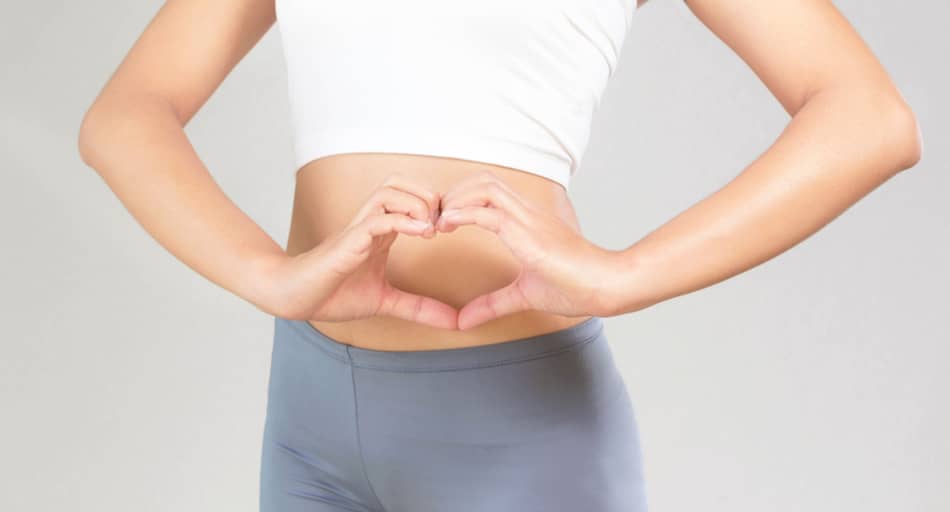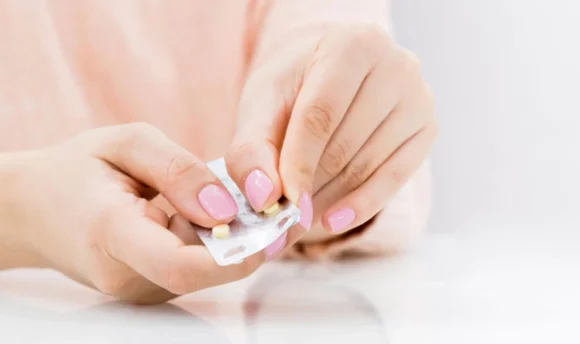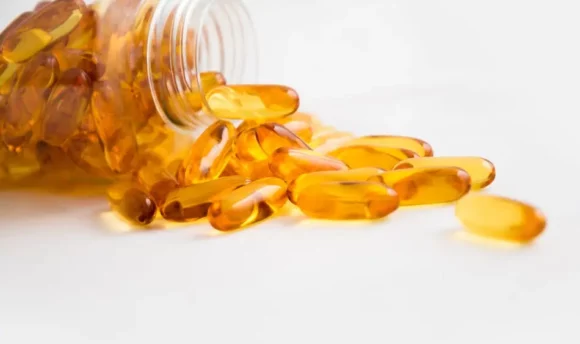How to Lose Weight After Gallbladder Removal: 7 Approved Tips
Managing your weight can be difficult after surgery, but there are ways to attain your dream body. From changing diets to exercising regularly, you’ll find a strategy that works for you. We detail everything you need to know about weight loss after gallbladder removal.

You may notice changes in your body after gallbladder surgery.
Small changes, like temporary weight loss and bloating, are completely normal. The human body needs a few weeks to recover from a big alteration. However, you need to maintain a healthy lifestyle to get your digestive system back up and running normally.
Surgeons often suggest eating smaller meals until your body recovers. If you consume fewer calories than before, you’re more likely to lose weight. This physical change might only be temporary, so it’s better to find a sustainable diet and exercise plan to eliminate fat long-term.
But how can you achieve this weight loss safely? Are there any side effects to burning fat after surgery? It’s essential to understand safe techniques to gradually lose weight.
In this article, you’ll learn 7 tips on how to lose weight after gallbladder removal.
Weight Loss After Gallbladder Removal: How to Achieve Desired Weight?
Following your fitness journey after gallbladder surgery can be challenging, but that doesn’t mean you can’t lose weight. There are strategies to safely burn stubborn fat. All you need is some motivation and guidance to achieve long-term weight loss results.
Here are 7 tips for achieving your desired weight after surgery:
#1 Change your diet completely
Surgeons often recommend people to follow a well-balanced diet that is low in fats.
The gallbladder stores bile to aid the digestion of fatty foods. Removing this organ means bile will drip into your digestive system. Your body may have trouble digesting fat until it fully recovers.
You should eat plenty of nutritious foods, like fruits and vegetables, to fuel your digestive system during recovery. Bananas, dairy-free milk, plums, chicken, sweet potato, low-fat yogurt, and salmon are good foods to eat. A nutritious diet plan will also prevent unpleasant problems, such as constipation, bloating, and fatigue.
#2 Exercise regularly
Performing regular workouts can help you lose weight.
Your doctor will suggest a suitable date for you to start exercising properly. Strenuous activity in the first 24–48 hours after surgery can disrupt recovery time, so make sure to let your body heal before starting a fitness plan.
You could walk every morning to help speed up the healing process. Even 10 minutes is enough to get your body moving. Avoid weight training or cardio-based workouts that may exhaust your body quickly. Those types of exercise will benefit you in the future once you have fully healed.
For moderate-intensity exercise, aim to get around 150 minutes a week. This is a good starting point after gallbladder surgery. You can always build up exercise when your body feels ready. Losing weight requires time and consistency, so don’t push yourself on low-energy days.
#3 Cut down on refined sugar
People are more likely to get gallstones from eating a high-calorie diet that contains refined sugar and unhealthy fats. You should avoid high-fat foods like cookies, salad dressing, fruit juices, ice cream, canned fruit, soda, cakes, milk chocolate, and energy drinks.
Sugar can also contribute to inflammation in your digestive system. This may increase recovery time and worsen the symptoms of abdominal pain. If you want to minimize the risk of weight gain, cut sugar out of your diet completely and stick to more nutritious foods.
#4 Reduce your daily caffeine intake
Caffeinated drinks contain acids that may cause stomach pain and discomfort after gallbladder removal surgery. You should limit beverages like coffee, tea, soda, energy drinks, and chocolate. Just make sure to drink caffeine in moderation during your recovery.
#5 Consult with a dietitian
A dietitian can help you establish healthy eating habits that support your body after gallbladder surgery. They may create nutritional programs to help you lose fat and keep it off. It’s always best to seek dietary advice from a professional who understands your goals and needs.
#6 Eat smaller meals
You should eat smaller meals that contribute to a low-fat diet. This will help you maintain a healthy weight after surgery. Surgeons will most likely give you a bland diet during the first two days of recovery, as this can avoid problems like bloating, abdominal pain, and diarrhea.
Having smaller portions can also help you drop fat and reach your ideal body weight. You can follow a 500-calorie deficit to see physical results. This means eating 500 calories less than your maintenance calories, so make sure to maintain a balanced diet full of nutrition.
#7 Avoid spicy, greasy, and fried foods
Greasy foods may cause stomach discomfort post gallbladder surgery. This is because the high-fat content leads to problems like bloating, uncomfortable bowel movements, constipation, and painful gas. Spices can also irritate the stitching and cause soreness in your stomach.
Limit how many takeaways you get from fast-food restaurants.
Burgers, fries, pizza, doughnuts, sausages, and hot dogs are examples of greasy, high-fat foods. It’s better to stick with a healthy diet that prevents weight gain and serious digestive problems.
Do You Lose Weight After Gallbladder Removal?
Yes, dropping a few pounds is normal after gallbladder removal surgery. People often lose fat after surgery due to the elimination of fatty foods.
Surgeons may give smaller portions that fuel your body with fewer calories. However, this weight loss is only temporary during recovery time. You may stop losing weight after your body has fully recovered.
You should never follow rapid weight loss methods to achieve fitness goals. This is unhealthy and can lead to serious health problems like digestive and kidney diseases. Always follow safe weight loss programs that promote healthy eating and regular workout sessions.
Possible Side Effects of Gallbladder Surgery
Surgery usually comes with side effects that last a few days. Gallbladder removal will mainly cause stomach discomfort due to altered metabolism. Most side effects are not a cause for concern since your body is only trying to recover from having one less organ.
Here are 3 potential side effects of gallbladder removal surgery:
#1 Abdominal pain
Pain in your abdomen is probably the most common side effect of gallbladder surgery. The human body is trying to adjust after having something removed. Certain foods, like fat-based meals, can increase stomach pain and potentially lead to constipation problems.
#2 Bloating and gas
Your digestive system needs to get comfortable with no gallbladder to digest fats. This may trigger temporary bloating and gas. Avoid carbonated drinks and drink plenty of water to reduce bloating. Have at least 12 cups of water a day to speed up your healing process.
#3 Diarrhea
You may experience diarrhea from increased bile in the large intestine. Doctors can prescribe medication to treat this side effect, but diarrhea often goes away during recovery. You can drink plenty of water and eat low-fiber foods until your bowel movements eventually settle down.
How Much Does a Gallbladder Weigh?
The average weight of a gallbladder is 2.4 ounces. Your gallbladder is a tiny organ that is about 3–4 inches long. It can store up to 3.4fl oz of bile acids before transferring them to the small intestine.
Losing your gallbladder won’t really affect your overall body weight, but it can still encourage weight loss from the lack of fats.
A gallbladder infection could make that organ much heavier than it is. Hardened substances, often called gallstones, can lead to inflammation. This is usually the reason for gallbladder removal surgery. Speak to a doctor if you’re experiencing signs of this infection.
A Word From Our Nutritionist
You need to take care of your body after having gallbladder removal surgery.
Surgeons will likely suggest diets that help you maintain a healthy weight. Low-fat dairy and fat products may encompass your bland diet. It’s always better to fuel yourself with nutritious food and drinks.
If you don’t limit greasy and sugary foods, you might gain weight around your stomach, arms, face, and thighs. This is something you should avoid when losing fat during recovery. Find a regular diet that incorporates lean meat, fiber-based foods, vitamins, and lean proteins.
To drop some pounds after your gallbladder removal, go for quick walks or runs that get your heart pumping. Brisk walking for 30 minutes is one way to burn that stubborn fat. Just make sure to take exercise slowly when recovering from such a big surgery.
Speak to a doctor if you’re concerned about side effects from gallbladder surgery. Stomach pain, bloating, and painful gas are very common in patients that have this organ removed. However, if something doesn’t feel right, seek medical help to find the problem.
Conclusion
During your recovery after gallbladder removal surgery, find a low-fat diet that helps you reach a healthy weight. This may be through dietary programs from a dietitian or cardio-based exercise routines. You can always increase the exercise intensity after a few weeks post-surgery.

















































 Select your language:
Select your language: 








